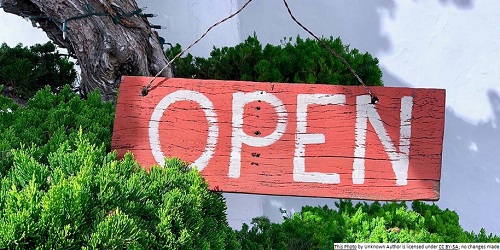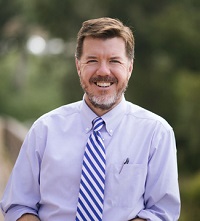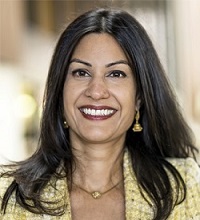By: Jeffrey R. Baker, Clinical Professor of Law, Associate Dean of Clinical Education and Global Programs, Director of the Community Justice Clinic, Pepperdine Caruso School of Law
Tanya Asim Cooper, Associate Clinical Professor of Law, Director of the Restoration and Justice Clinic, Pepperdine Caruso School of Law
In 2015, as the Ferguson uprisings swelled in Missouri, we felt a rising tension, anxiety, anger, and discord among our law students at Pepperdine (now Pepperdine Caruso School of Law). Students had organized demonstrations for justice at the law school, and they were seeking other outlets and means to engage. Like much of the nation, they wanted to talk about it, but the law school did not have a ready forum for them to process this controversy together. Professors are often reluctant or unable to pause their regular teaching to engage in wide debates on current events, especially when they are trying to cover significant material in class. But the need persisted, and intensifying frustration created and deepened divisions within the school.
The dean of students and diversity council conferred with each other and with students, and a student suggested regular, simple lunches and conversation for the student body on the potent questions surfacing around race and racism, policing and police violence, and our national convulsions toward justice.
This was the provenance of our first Open Conversation. Over fifty students attended, and we set out some simple guidance. This was not a teaching moment for the faculty, and it was not a debate. It was a conversation, discourse to share perspectives, an opportunity to speak and listen, to engage across difference, to give voice to pain and anger, to explore paths forward, all from the students’ perspectives and experiences. With general prompts and light moderation while breaking bread together, the conversation was rich, critical, vibrant, heartfelt, and serious. It did not fix all of the issues or resolve all the tension within our school, but it was a moment of genuine community struggling with itself but refusing to alienate each other.
The students expressed gratitude for the time and the opportunity to speak and listen. Afterward, a member of the diversity council wrote:
My fear going into it was that either no one would come or no one would engage in conversation. I was pleasantly surprised that my fear was unfounded. If anything, I thought the hour felt too short for the full conversation. Which I think just goes to show how necessary these open forums are and how glad I am that we are starting this. The other thing I noticed is how sad some of the comments made me. I consider myself very aware of racial tension happening across the country but to hear the struggles from some of our own students was tough.
A senior administrator reported, “We held a very intense, but positive open forum on Monday at which our students were very responsibly and respectfully engaged. It was well attended and, in my opinion, very worthy of good lawyers discussing hard topics.”
After that first Open Conversation, we continued to offer them when controversies erupted nationally or locally, refining the approach. In time, they became so important to our community that the law school began offering them monthly during the school year. Now, they are a permanent project of the diversity council, and the law school prioritizes them with “black out” dates once per month so that there is no competition from other events during the lunch hour. And, as an essential ingredient of the experience, the law school provides great food for all comers. (Typically, it’s burritos from Lily’s in Malibu, the best breakfast burrito in Los Angeles County.)
The broad objective for Open Conversations is to build a healthy culture within our law school community. It is not to resolve every issue or to engage in antagonistic debate; there are plenty of other opportunities for that during law school. Rather, it is to enrich our discourse with care, respect, and dignity, even over the most contentious issues. Moderation and centrism are also not the aims; students advocate and argue in Open Conversations with conviction but within a framework that aims to hold our shared life at the heart of our discussions. In our current national season of extreme polarization, brutal partisanship, personal antagonism, and so-called “cancel culture” (all of which have been topics of our discussions), the Open Conversations are counter-cultural exercises in democratic engagement.
To these ends, we developed a practice of lightly-moderated discussions over lunch around curated topics with important ground rules for the conversation. We typically have fifty to sixty students and another ten staff and faculty in the room. The ground rules are “conversational harnesses” to preserve the objectives of discourse and engagement, and we share them at the top of each open conversation:
- Open Conversations are for discourse, not debate.
- Listen; don’t try to win.
- Share the airspace equitably; speak only when you have the mic.
- Be respectful; address ideas, not people.
- Speak from your own experience and perspective; do not question or attack others for theirs.
- Do not broadcast, record, or disseminate anything from the conversation on social media.
We pass a microphone around the room to ensure that one person speaks at a time (like the conch rule in the first, happier part of Lord of the Flies) and to promote accessibility and clear communication. On very rare occasions, the moderator may intervene if a student transgresses a ground rule or if the conversation turns personally confrontational. Sometimes the moderators, faculty, or staff in attendance will participate in the conversation itself, but we try to keep our comments limited to asking follow up questions, providing factual or historical context, or identifying constructive threads running through the students’ contributions.
After everyone gets their food and we have explained the ground rules, we introduce the topic for the day with a few general prompts to get the conversation started. We take real care in selecting topics; the diversity council meets monthly, usually the week before the Open Conversation, to consider the hot topics of the day. We do not necessarily pick topics that are divisive on partisan lines, but we pick topics that are immediately controversial, critically interesting, or universal to the law student experience. Among many others over eight years, topics have included school shootings and the Second Amendment; #MeToo and the Kavanaugh hearings; human rights at the Olympics; impeachments and January 6; faith in the law; the Dobbs decision and reproductive justice; “cancel culture” and free speech in the academy; Trump indictments and the Tennessee 3; the nature of justice; police violence and procedural reform; and family conversations at Thanksgiving (which has been hilarious).
Good food is a critical element for the success of Open Conversations. We almost always hold them during the lunch hour, and it is a specific discipline to eat together while discussing hard, divisive topics. Across all cultures, breaking bread together, especially with adversaries, is a mark of intentional hospitality and peacemaking. During the pandemic, we saw our various student groups polarizing before our eyes as they launched invectives at each other online while otherwise alienated from each other. But we have seen constructive engagement, even healing, across our school culture when the community eats together while looking at each other directly to talk about intense controversies.
People talking together over a meal is not novel or revolutionary, but it is ancient and radical. Of course, we’ve had mixed results. Some conversations are vibrant, energetic, critical, and creative. Some are chilled and reticent; some veer into personal confrontation. Our hope is that merely holding Open Conversations and attempting the exercise signals the values and aspirations of our community. We aim to contribute to a robust, generous, and vital culture of engagement within the law school, and we hope that this models the best kind of culture possible in our diverse communities. If our students can experience the work of hard conversations together with constructive advocacy and critical, benevolent disagreement, we hope it will equip them for this work as public citizens in their career.


